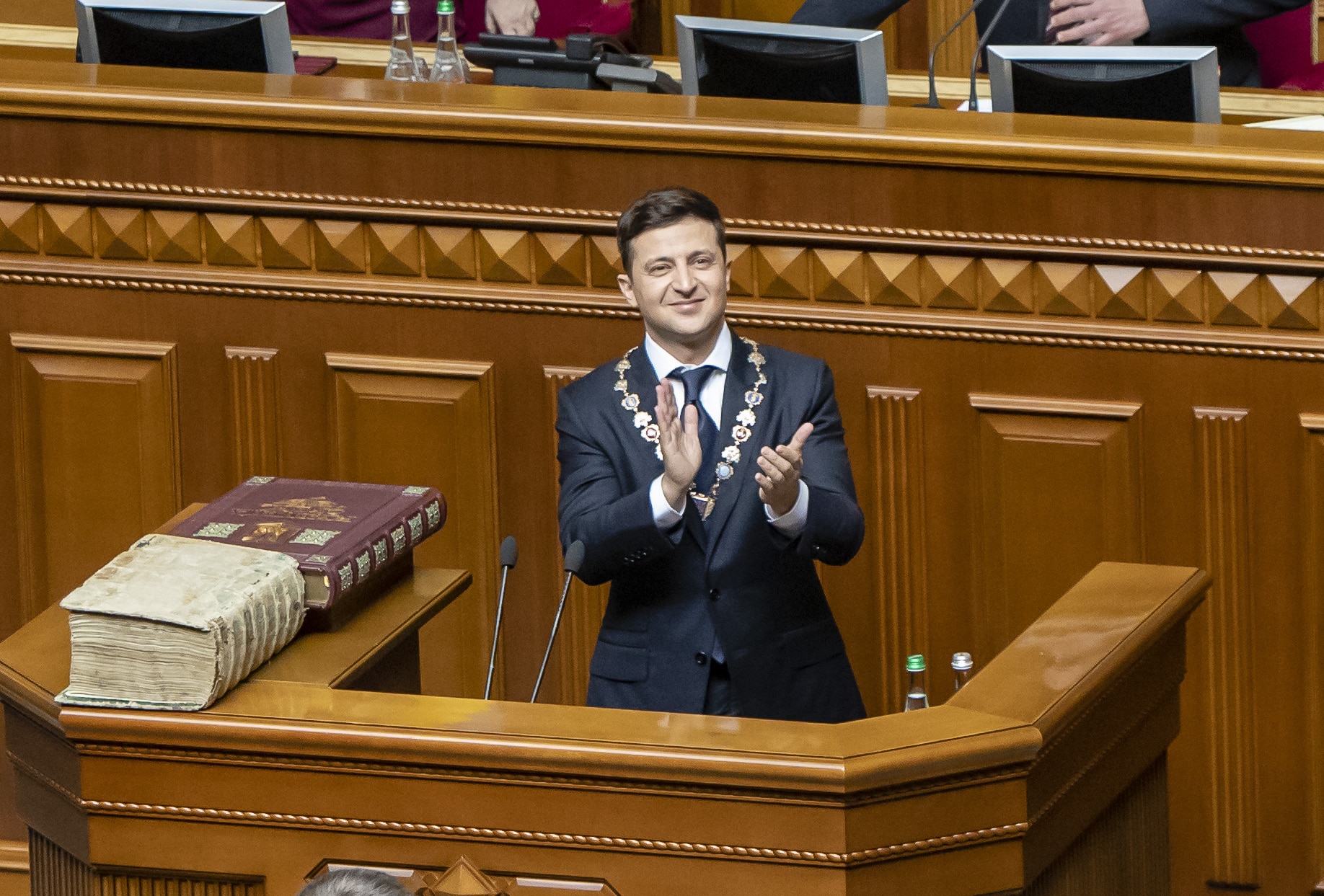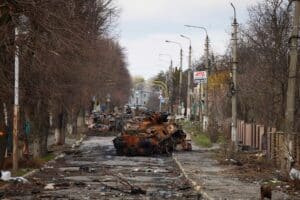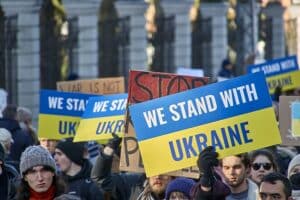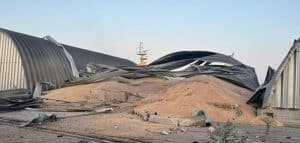On Sunday July 21, snap parliamentary elections were held in Ukraine. Votes were cast nationwide, with the exception of the Russian occupied territories in Donetsk and Luhansk. Originally, the elections were scheduled for October, but newly elected President Volodymyr Zelenskiy called for early elections to dissolve the current parliament (Verkhovna Rada), which was blocking practically all of his initiatives.
Almost all of the votes have been counted, and it the results show five parties set to enter the new parliament.
The new parliament
With approximately 43.14% of the votes, Zelenskiy’s Servant of the People party is the winner of the election. The party, only founded in 2018, is pro-European and pro-NATO, but other than that quite broad and undefined in its ideology. Priorities on the agenda are boosting Ukraine’s economy by introducing several state reforms and anti-corruption measures. Overall, they want to strengthen the Ukrainians trust in the state.
Second Runner up is the Opposition Platform ‘For Life’ (OP-S&D), with 13,1% of the votes. The Party is positioned centre-left, and is openly pro-Russian and anti-EU/NATO. It was established, under its current formation, in 2018, but mostly includes members and/or allies of the former President Victor Yanukovich’s Party of the Regions. Some observers criticise that the OP-S&D is as a “personal” project of oligarch Viktor Medvedchuk, who has ties with Russian President Vladimir Putin..
The third place is occupied by the All-Ukrainian Union “Fatherland”, which seized gained 8,18% of the votes. The party is centre-right and pro-Europe/NATO and is led by Yuliia Tymoshenko, one of the most experienced political leaders in Ukraine and its Ukraine’s first and only female PM. It The party was founded in 1999.
Next is the European Solidarity (ES), gaining 8,12% of the votes. The party is essentially a rebranding of former President Petro Poroshenko’s “Poroshenko Bloc”., still headed by Poroshenko. At the head of the party is former president Petro Poroshenko. This party is also pro-European and pro-NATO and aims to continue Poroshenko’s political agenda. Quite uniquely in the Ukrainian political landscape, ES is a strongly supports gender equality.
Lastly, Holos (“Voice”)‘Voice’ enters the parliament with around 5.86% of the votes, just passing the 5% electoral threshold. The party was only founded two months ago by Ukrainian Rock singer Sviatoslav Vakarchuk. Like President Zelenskiy, he represents himself as an anti-establishment politician. His party’s political agenda is liberal, and also pro-EU and pro-NATO. Moreover, ‘Voice’ promised to tackle the power of Ukrainian oligarchs in the economy, politics and media.
Historical elections
President Zelenskiy is on the way of becoming Ukraine’s first president, since the fall of the Soviet-Union, to rule the parliament with a single majority. The Servant of the People Party is estimated to win between 246-249 out of 424 seats in the Verkhovna Rada. This comfortable majority allows Zenlenskyi to push through his agenda and to decide on the make-up of the new government. However, the low voting turn-out is also historic: only 49.9 percent of the population cast a vote.
Observations and international reactions
So far, heads of states and governments came forward to congratulate Ukraine. Russian foreign ministry is positive about the results and state that they “offer hope”, but warns the newly elected parliament to use their mandate “wisely for peaceful purposes and for the benefit of the population of the whole country.” American US and Canadian diplomates congratulated Ukraine for holding “free and fair elections” that “respected fundamental freedoms”.
The Organization for Security and Cooperation in Europe (OSCE) observed the elections, and concludes in its preliminary statement that during the “elections in Ukraine fundamental rights and freedoms were overall respected and the campaign was competitive”. Despite the short time-frame for preparation, the electoral administration was generally “competent and effective”.
Nevertheless, some issues remained and improvement is necessary. For once, vVote-buying remained wide-spread in many regions of the country, especially in single-vote mandate districts. Moreover, the OSCE reproaches an “exploiting all possible legislative loopholes, skewing equality of opportunity for contestants”. Media coverage was particularly unfair, as it was largely dictated by business and political interests. This did not ensure equal coverage for all the candidates.
President Zelenskiy himself has ties to oligarch Ihor Kolomoisky, owner of 1+1, one of Ukraine’s most popular TV channels, which had always broadcasted his shows and has given Zelenskiyi a powerful platform. On the day before the presidential elections, the channel was filled with shows by comedian Zelenskiy.
The overall media landscape is “divided along political lines” and concentrated in the hands of a few owners. Public media is heavily underfunded, thus the main information stems from private and often biased outlets.
What is next?
The stunning result of the parliamentary elections will lead to a reshuffle of the political landscape and the introduction of many political newcomers. The new parliament faces a lot of challenges, mainly the country’s heavy reliance of foreign aid and the aftermath of the war with Russia. In the upcoming timeperiod, President Zelenskiy will put together a new government. He is looking for a new Prime Minister that should be “a very professional economist . . . a completely independent person from outside politics”. A lack of political experiences is also something the newly elected President prefers in all his appointments. Moreover, priorities are to speed up state reforms to ensure NATO and EU-membershipfor further EU integration, and to build lasting peace in the Donbass region.
Sources: Reuters, Unian, Europe Elects, Euronews, Kyiv Post, Financial Times, OSCE, Radio Free Europe/Radio Liberty, Al Jazeera



